We’re Different, Just Like Everyone Else
In the spring of 2017 we retired, left Colorado with the car pointed South, eventually getting to Florida where we spent several months on some of the barrier islands there. Later, we found ourselves on a couple of the Bay Islands of Honduras (Utila and Roatán), made a quick jaunt over to Ambergris Caye, Belize, and then moved on to Vieques, Puerto Rico.
So here we are on this island, with our friends in the States thinking we’re just a few pineapple chunks short of a piña colada. We like to think we’re not crazy, we’re maybe just a little bit different. But once we settled in and started to really get to know our fellow islanders, we realize we’re not that different at all, not in this crowd! Every one of the transplants we talk to here has a great, interesting, funny story, a path that took them from their old normal to this new normal (this new abnormal!).
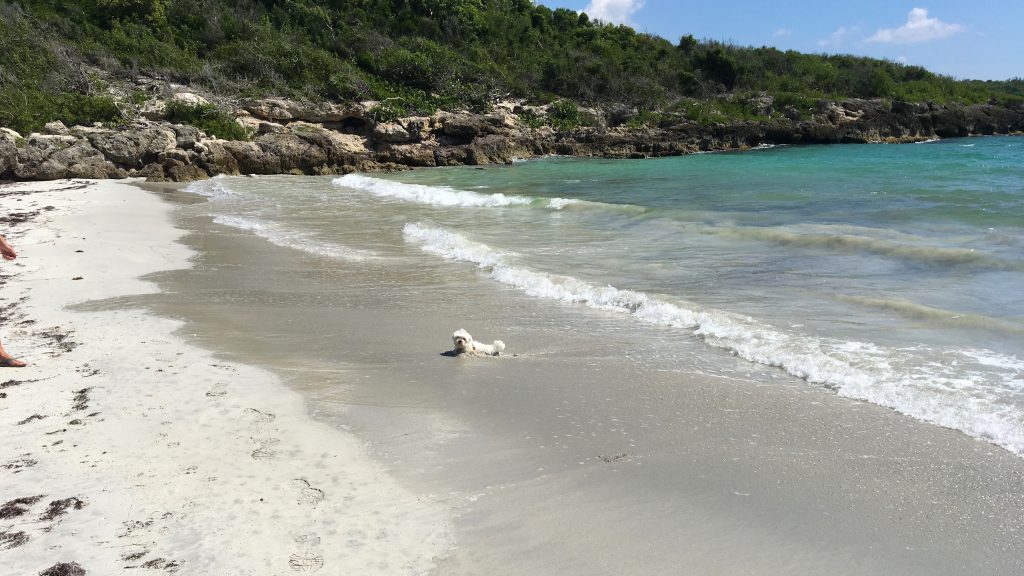
Some of them are younger people who simply wanted to come to the islands to work and live. Can you blame them? If you like it warm, the weather is incredible, excepting the occasional hurricane. We get some humidity yes, but we also get periods of dry air, wonderful breezes, and enough warm rain (usually in the morning or at night) to keep everything green. Then there’s the lifestyle here, which has laid-back on lock. Sin zapatos, sin camisa, no hay problema. There are lots of outside activities, some of which we listed in the last blog post, but there’s also: surfing, sailing, jet-skiing, partying!, boating, fishing, scuba, hiking/exploring, and all the various beach games.
They get to live where everyone else vacations (we do too!), and that’s a pretty cool place to be. Even better, some of them find deals where they become caretakers for someone’s property, getting free or reduced rent in the deal. Well, this isn’t just for young people; anyone on the island who has a reputation for being trustworthy could do this if the right situation was to come along. They work hard and play hard. But it can be a real struggle in the slow season as business falls off. Many of the restaurants and hotels close and the jobs dry up for several weeks in the fall.
Some folks here are in the middle of their working lives, and have been successful enough to buy a second home here. They are part-timers, and they come to the island every chance they get, to get away from it all back home (which usually means getting away from the ice and snow). The vast majority of these people are one direct flight away from San Juan, so they can get here reasonably quickly. Some rent out their island homes while they’re away to help pay the bills, but that brings along two homes worth of maintenance and repairs, one of which you’re always trying to do from long distance.
We know good folks who live aboard their sailing vessels, some of them also do day cruises for a living when they’re not making a run to Jost Van Dyke or Saint Martin. Some of the full-time people have started other businesses here as well, a real variety of them. If you are not in the lodging or food service industry this is typically how you would “get a job” on this island, by opening your own business, because there’s just not many other options. A couple of our friends are “The Gophers” and they take the ferry to the mainland weekly to pick up and deliver things to the transplants who are willing to pay a little extra for this service. Another great guy we know does occasional pig roasts and pop-up speakeasies along with his regular bartending gig.
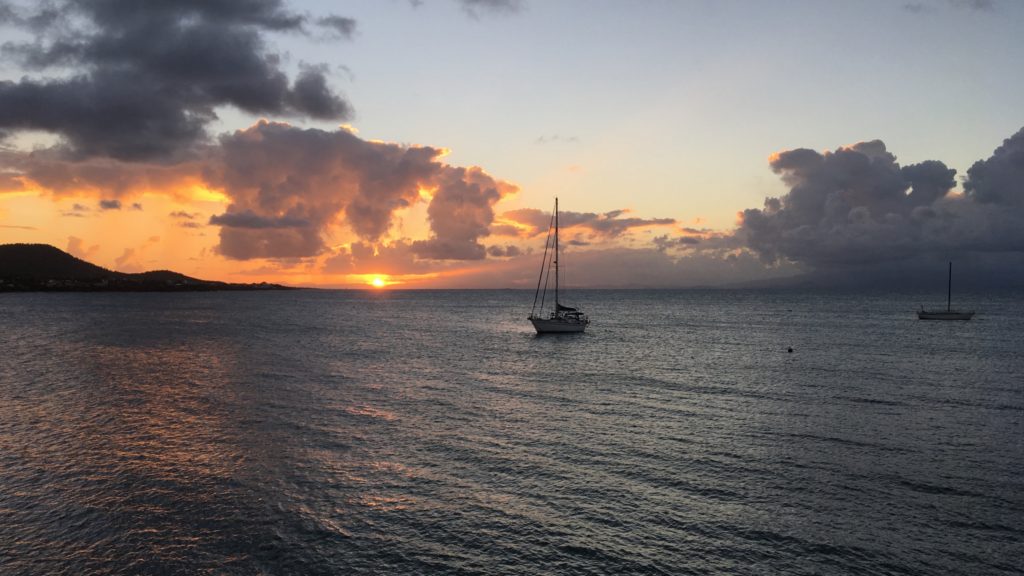
We know several people who manage properties for those who rent out their places while they’re away, and also do maintenance/repairs, or even construction. We know several restaurant owners from food trucks to fine dining and everything in between. And there are the folks who own the rental and tour businesses (Bio Bay tours, Eco tours, diving tours, and jet-ski/kayak/paddleboard/etc. rentals). There are wedding photographers, construction companies, and the list goes on.
Other residents are a bit closer to us (but we still claim our individuality!). Shipping stuff to the islands is very expensive, so most people here have sold all their stuff (a lot of it anyway), pulled up roots, and moved themselves to the islands full-time, retiring here in one form or another (sound familiar?). But many of them also bought houses right away, something we still haven’t made ourselves do. On one hand, we see them as crazier than us, especially after the disaster called Hurricane María. But the flip side is that they aren’t paying rent to fund someone else’s retirement home.
We still get the surprised looks when we tell people we moved here without ever having set foot on this rock. But I swear our plan wasn’t as risky as many folks think. Several conversations have gone about like this:
“Oh so, you live here?”
“Yes, we came in January.”
“How many times had you been here before deciding to stay?”
“Oh, we’d never been here before.”
“What? But what if you didn’t like it, what would you have done?” (with much alarm in their voice)
“Well, I guess we’d have moved then!”
At this point they tell us how “brave” we are (which basically means we really should have thought this through a bit more).
We started off with a 6 month lease, because we really didn’t know anything about the island, and at the time the island was only 4 months removed from near devastation. We really had no idea what to expect but we figured we could do six months standing on our heads. It’s really not nearly that complicated or risky, when you go somewhere and rent a place – as long as you don’t start gathering a bunch of new STUFF! We’ve since renewed that lease for another 12 months, as our love of the island, and our confidence in the Vieques economy, grows.
One of my favorite sci-fi movies is the Matrix (yes, this is a strange segue but stick with me for a minute). It has occurred to me that island life is an almost perfect example of the red pill / blue pill theme of that movie. Those of us who live in the islands have taken the red pill of knowledge, freedom, uncertainty, and the brutal truth of reality. Tourists on the other hand, have taken the blue pill of security, happiness, beauty, and the blissful ignorance of illusion. Don’t get me wrong, this is not a judgement of anyone, and we all become tourists when we go other places (the blue pill is good!). It just seems that by living here, we have gained experience that others don’t have, and hardships are part and parcel of that experience. I’m even willing to bet that most islanders wish they could take the blue pill, at least once in a while. To use a more down-to-earth analogy, we’re learning how the sausage is made while others are just enjoying that luscious, savory, meaty, sausagey treat!
What all of these people have in common, including us, is that they’re willing to live without some of the luxuries that people in the States would consider necessities. Everyone is different on this point, but in our house we have no dishwasher, microwave oven, clothes dryer, or wine fridge (ha!)! We don’t even have a TV – we stream shows, movies, and live sports on the laptop. One day that may change but for now we choose to own fewer things, because that’s fewer things to break, fewer hassles in life.
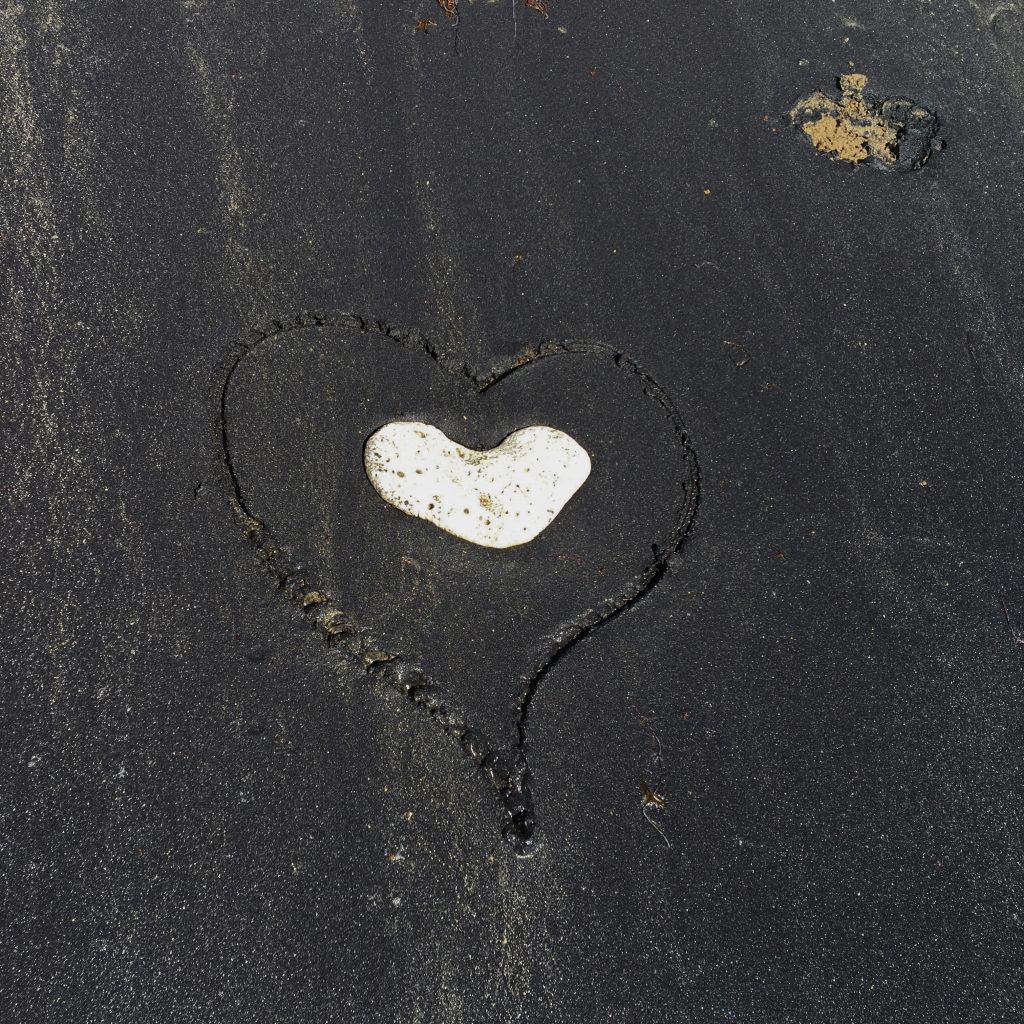
But everyone, unless they’ve really ponied up for whole-house off-grid solar power (at $10K, $20K, $30K+), get spotty power & spotty water. And we all deal with pot-holes the size of paella pans. And everyone deals with mosquitoes, they won’t let us forget them! But everyone here also has remote beaches and unique places to explore in trade for some of those annoyances. We think it’s worth it!
We all came here to build a life, a life that is different from what we had in the States, in Canada, or in Europe. We’re all different people with different backgrounds and different goals and expectations for the future. But we’re kind of all the same too. I was standing in the water talking with a buddy and he kept talking about how a blog can’t describe the feeling we get from living here. “The feeling, Norm!”. I agree with him, it’s a great feeling and it’s hard to describe, but we’ll keep trying.
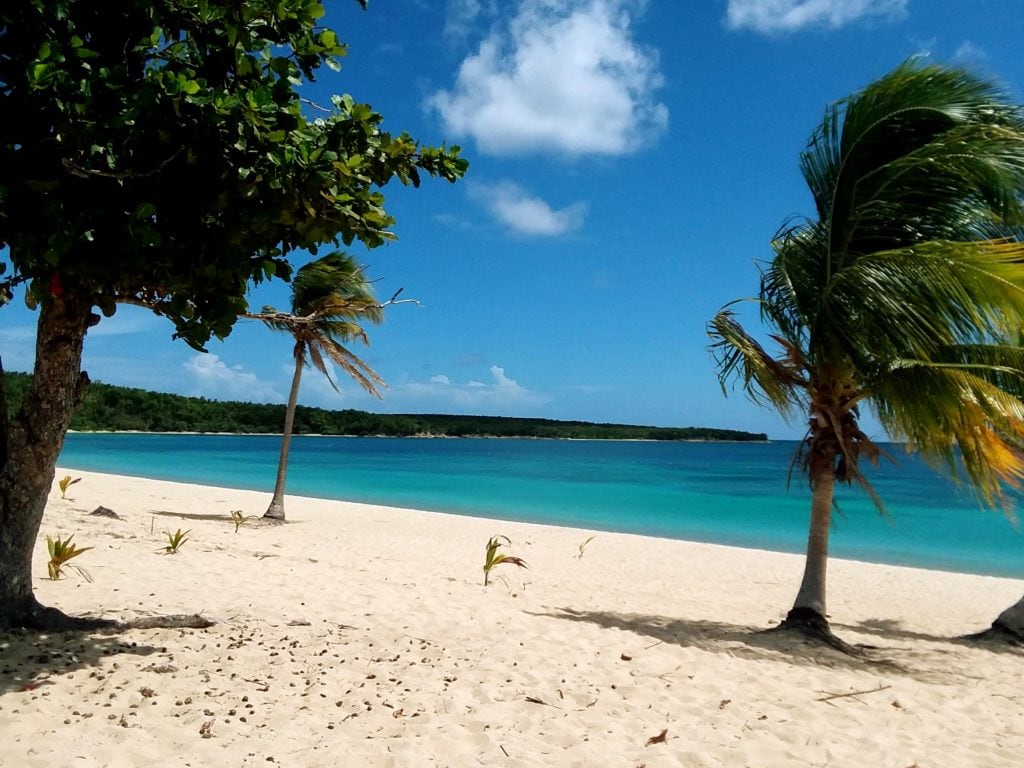
TODAY’S SPECIAL: “We’re All Here“, by Kenny Chesney. Maybe we’re all here ’cause we’re not all there?

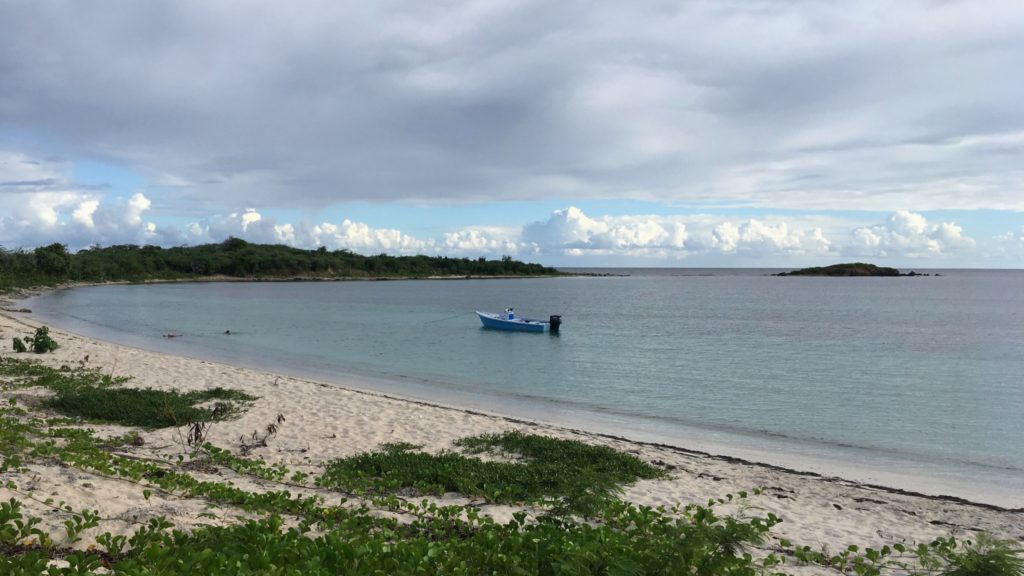
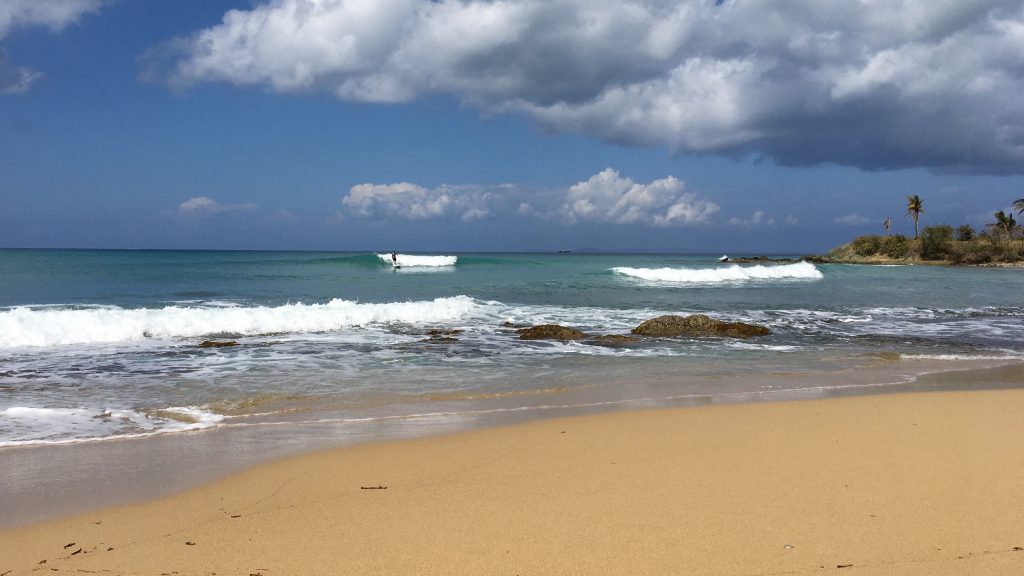
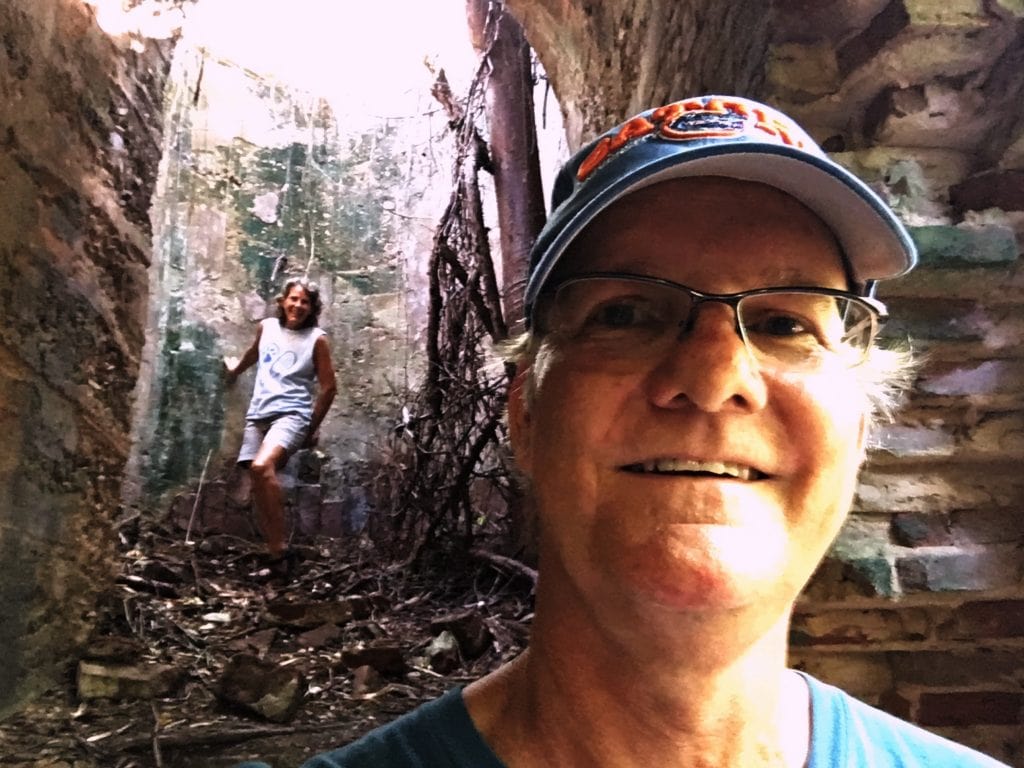
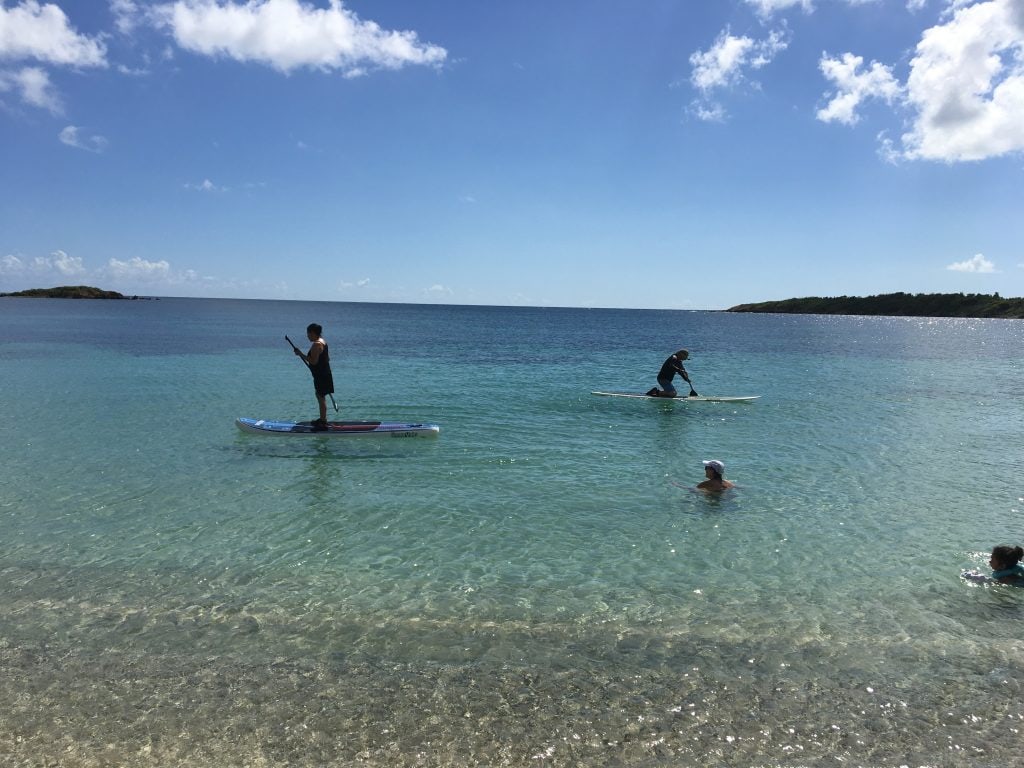
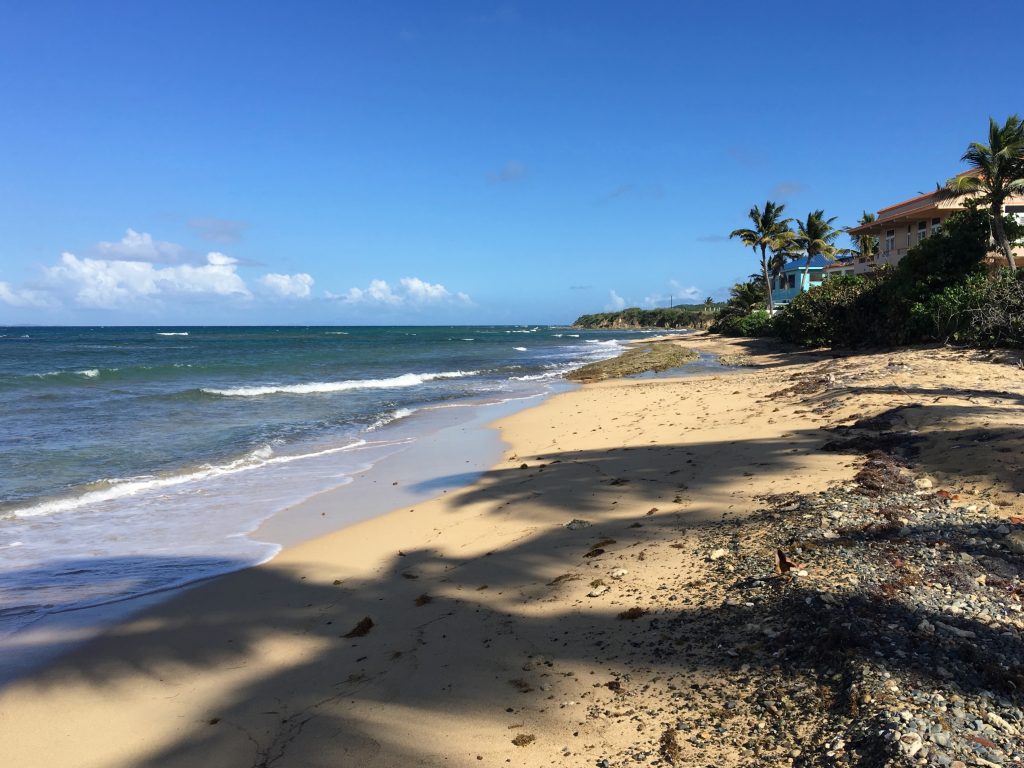
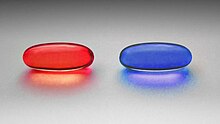
Ahh, my regular splash of tropics, and a life other than on the treadmill!
Happy to be of service Kevlar! Hope all is well in the treadmill life, but that doesn’t exactly sound right. Cheers anyway.
I am just back from a blue pill trip to Vieques. Sailing, snorkeling, beaches, Bio-Bay. Oh, yes, “the feeling!”
Have you already written about “Bieke”? I mean the deeper history and reasons. I don’t know the history/background- I’m betting you will have insights…
Hi Mary, it sounds like you’re definitely getting “the feeling” of Vieques! I haven’t written about “Bieke” and the history and I won’t claim to have deeper knowledge. But I do like to throw in some background from time to time as it relates to our adventures so that is likely to happen in a future post. Thanks for joining the conversation!
Personally, I think the red pill enables the blue pill. Even after retiring, I’m working on a few red-pill items.
Last week, my furnace decided to fail. $7K later, the house is warm again. During the next hurricane, you can think about that…
One question Norm – do you think the backup power supply was worth the investment? Every time I’m at Lake Powell, the answer is an emphatic “yes!”
Oh yes, it has been worth every penny even if we never break even on it! Every time the power goes out, and it’s been often lately, we smile and enjoy our lights, fans, Internet, etc.
Yikes, I guess my son’s $1000 furnace repair wasn’t so bad after all! I think you and I spent too many years in the wrong business. Furnace repair is pretty damn lucrative!
The installers make pretty good money when they can work, but building cameras involves far less dust.
I agree with having fewer things and simplifying.
“The more they overthink the plumbing, the easier it is to stop up the drain.”
– Scotty in “The Search for Spock.”
Apparently, in new high-efficiency furnaces, the exhaust condensate (hot water) flows back downhill to an air pre-heater that eventually corrodes (carbonic acid) in about 15 years. I’d like to see the B.E.T. calculation on that one. Something you’ll never have to know in Vieques.
Your backup electrical system is certainly justified by the RPN (risk analysis). Civilized life is difficult without power (or heat in Colorado). Maybe your “side business” in Vieques is providing emergency backup power to your neighbors’ refrigerators.